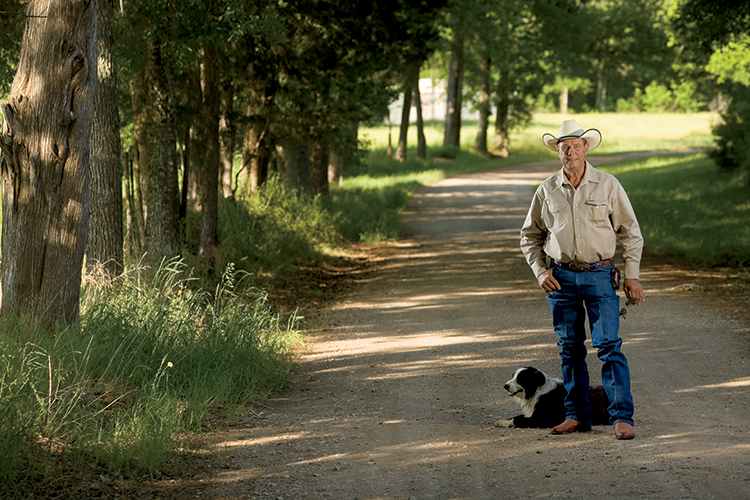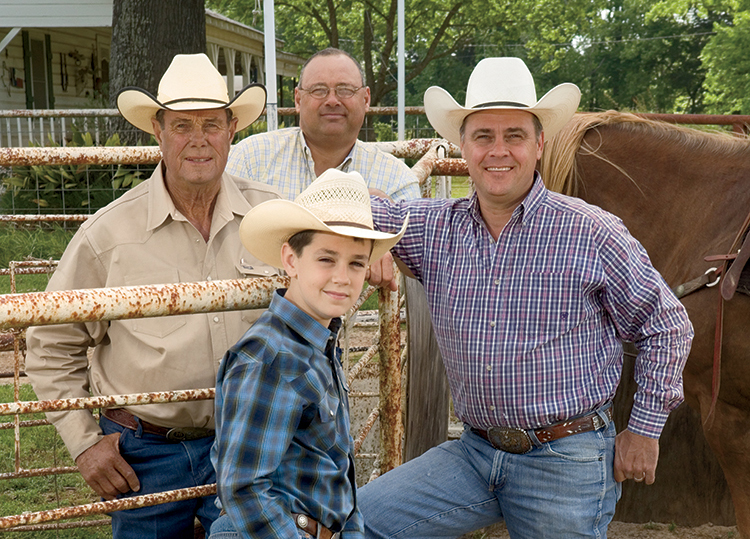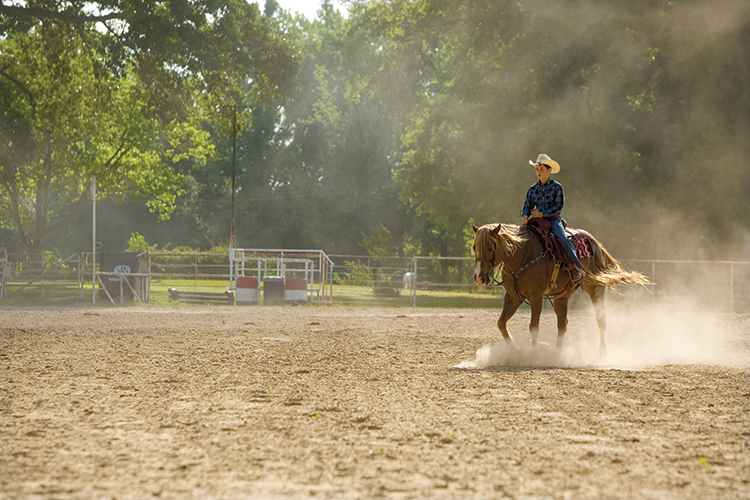Home > Texas > Texas Farm to Table > This Land is My Land: Texas Family Land Heritage Program
This Land is My Land: Texas Family Land Heritage Program
In partnership with: Texas Department of Agriculture

- Bill Hairgrove is farming the same land in Timpson that his family has worked for more than 150 years.
If there’s one quality Texas farmers and ranchers share, it’s perseverance. Thousands of determined and courageous families have farmed the same land for more than a century, feast or famine. The Texas Department of Agriculture honors these hard-working Texans through the Family Land Heritage program.
Since the program’s inception in 1974, more than 4,800 farms and ranches have been recognized for being in continuous agricultural operation under the same family for more than 100 years. The families are officially recognized every November at the Texas State Capitol for the agricultural legacies they have passed down for generations.
Hairgrove Ranch
Century farm honorees include Bill Hairgrove, whose cattle ranch in Timpson became a homestead in 1859 under his great-great-grandfather. Today, he owns 105 acres of the original family farm, where he raises cattle and timber.
“The farm was originally 4,300 acres. My great-greatgranddaddy had a big family,” Hairgrove says. “At one time, it was a dairy farm, and they raised corn and tomatoes a long time ago. We don’t grow row crops anymore. My dad raised cattle and timber, so that’s what I learned and what I know.”
Hairgrove grew up on the farm and later raised his own sons, Tom (44) and Burt (42), on the same land. Though all three work jobs off the farm, they’ve managed to keep it running and in the family.
“I’m retired from Southwestern Bell Telephone Co., but I’ve always loved farming because you can work at your own pace, and you get to do something different every day,” Hairgrove says. “I love the lifestyle, and I enjoy watching the cattle grow.”
Yet another generation is already carrying on the torch at Hairgrove Ranch. Hairgrove’s 10-year-old grandson Aaron spends as much time as possible there.
“Aaron loves riding his horse through the pastures, looking at the cattle and giving them feed,” Hairgrove says with enormous pride.

Wadley Farm
In Graham, Harriett Wadley Reger is proud to be sharing her agricultural heritage with her grandchildren.Wadley Farm was established in 1886 by Reger’s great-great-grandfather, who came to Texas from Tennessee.
“My dad inherited 145 acres of the farm from his father, and I inherited those 145 acres in 2008 when my dad passed away,” Reger says. “It’s my legacy that I will leave behind. I wouldn’t choose to live anywhere else.”
Reger and her husband, Gary, maintain coastal native grasses on part of the land, and they raise wheat for their cattle to graze.
“I call our cattle ‘our girls,’ ” Reger says with a laugh. “We treat them like family. I love to sit outside and watch the calves run, play and kick their tails up. When the mother cow moos, all the little calves come running. I wish my grandkids did that.”
The Regers have one daughter, Sarah Beth Hill (35), and four grandchildren, Tristan (12), Gracelyn (10), and twin boys, Hudson and Hunter (4).
“Tristan has lived and breathed John Deere tractors growing up,” Reger says. “He says he wants to build his own house on this land someday, and Gracelyn says she wants to have our house.”
Before her father died, Reger promised him she would never sell the land.
“My daddy was a farmer through-and- through. If there was a weed down there, he was on his tractor plowing,” she says. “I never wanted my daddy to fret and worry that I would sell this land. I know my daughter won’t sell it either, because she has made so many memories, just like me.”
Reger and her family were honored in 2011 by the Family Land Heritage program for their devotion to agriculture.
“Farmers are the most optimistic people. You have to have a lot of faith, and God sees you through,” Reger says. “It was quite an honor to be recognized by the Family Land Heritage program. I know my dad and granddaddy were up in heaven beaming.”





Linked up at Time to Sparkle Tuesday and Totally Talented Tuesdays
I have a question about your Posole recipe in the current issue – where did that come from? I love Posole and make it occasionally, traveled all over Latin American and have had it there – NEVER have I seen or had Posole with cabbage and carrots in it. Beans and tomatoes are not usually used but at least those ingredients I’ve seen in it before. I get the use left over bbq pork being a NC thing, but the pork is not smoked nor does it have sauce on it. I have a hard time with you calling this recipe Posole because it is not.
Traditional Posole recipe:
slow cooked pork shoulder shredded or cubed
chopped onion
hominy corn (yellow or white)
chicken broth or broth from the cooked pork
salt and pepper
White posole uses crushed red pepper
Red posole uses red chili powder in the broth
Green uses roasted fresh (or canned) green chilies
I understand your view that this is not traditional Posole, however you make some assumptions that are somewhat in error. First “posole” is Spanish for hominy. Therefore I would disagree with saying this should not be called posole. Second, it appears you think of barbecue as sauced meat. Barbecue in it’s purest sense is slow cooked, smoked pork. Sauce is a condiment just like mustard or mayonnaise. For this recipe the barbecue is smoked meat with nothing else added. Every region calls foods by different names and have different ingredients. You mention above White, red, and green. For those used to red, a green could used your arguments to say it’s not “real” posole. I encourage you to try this recipe. It is very good, regardless of what you call it.